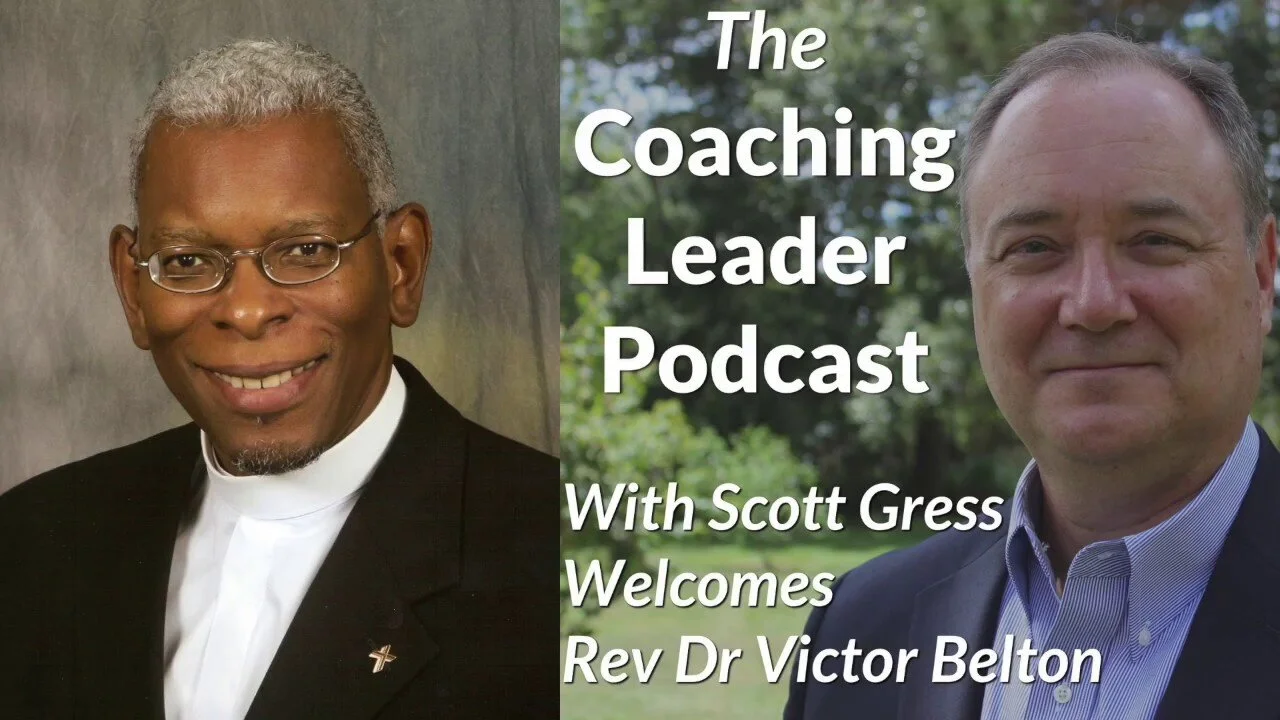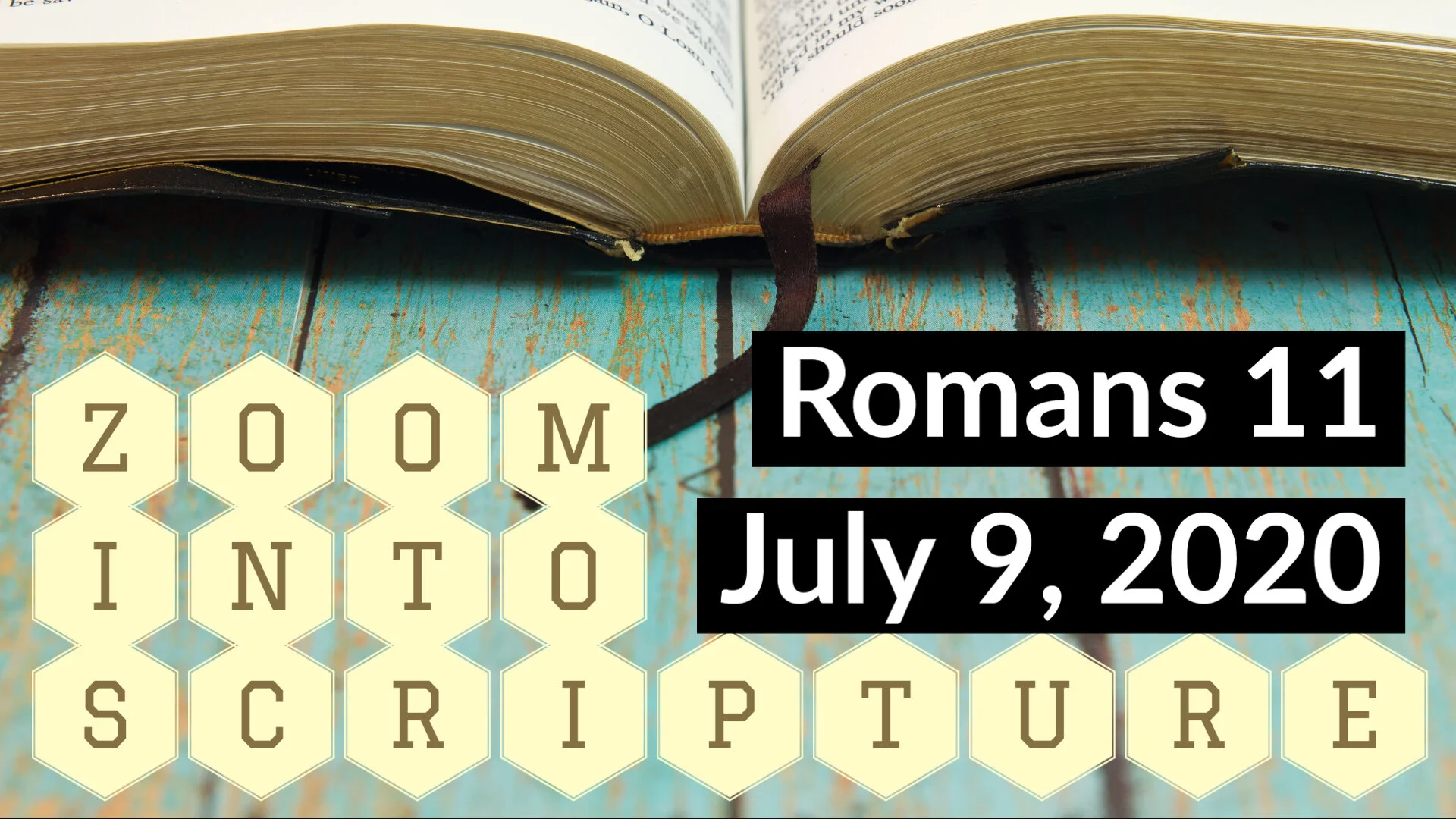
#GospelResistance [From MBird.com]
In Jesus Christ, God has not left us anyone — not a single person — whom God is not for because every single one of us is yet in bondage to an Enemy from whom Almighty God is determined to set us free.
From: https://mbird.com/2020/07/gospelresistance/
Thankful for this post by our good friend, Jason Micheli:
On Twitter today, the hashtag resist trended in dizzying directions, linking causes as disparate as police brutality, cancelling Tucker Carlson, and even cancelling cancel culture. #Resist was also linked to standing up against “oppressive” mask orders in localities hit by surges in the coronavirus. Given the ubiquitous yet ambiguous nature of the word, it would behoove us as Christians, I believe, to ask what it means to resist, biblically-speaking.
The Apostle Peter uses the word to exhort the elect community, “Be self-controlled and alert. Your Enemy, the Devil, prowls around like a roaring lion … Resist him, standing firm in the faith.” Peter puts it in the imperative, antistete — “Stand against him!”
In his Sermon on the Mount, Jesus commands those whom he has called to love their enemies. That Jesus orders his disciples to love our enemies suggests that Jesus expects us, like him, to make enemies. The problem, though, is that too often — at least in a liberal denomination like my own, United Methodism — the enemies the Church stands up to resist are everybody’s enemies: racism, sexism, homophobia, xenophobia. It’s not that those issues are not urgent. It’s that the distinctive form of our Christian witness becomes unclear if we’re simply resisting what you need not be a Christian to resist.
The negative frame of the word makes it all the more critical we understand, in Gospel terms. It’s riskier to be against something because the very act of resistance, drawing lines between good and evil, righteous and unrighteous, risks obscuring the offensive, counter-intuitive Gospel that God has elected us to proclaim. How do we practice Christian resistance without resisting the radical inclusiveness of the Christian kergyma?
Done, not Do — that is the Gospel.
The Gospel is not Become a Better You. The Gospel is Christ has Died for Unrighteous You. Christ was cancelled for the sake of every last deplorable. While we were yet his enemies, Paul announces, Christ Jesus was crucified for the justification not of the good but of the ungodly. And notice, the apostolic Gospel is not that Christ Jesus was crucified for the repentance of the ungodly. No, on account of Jesus Christ and his shed blood alone, God declares even the ungodly to be in the right — righteous — before God.
The Gospel is more inclusive than anyone who does not know scripture could imagine.
God is not just a God on the side of the poor and oppressed, the righteous and the peacemakers. The Gospel makes the offensive claim that God is also on the side of the irreligious, the immoral, and the unjust. The Gospel is Good News for victims, yes, but also for the victimizers; for the oppressed, of course, but for their oppressors, too. How many churches have you seen with signs out front that say “Crooks, Adulterers, Liars, and Xenophobes, Welcome!”
The Gospel proclaims the exasperating news that the Living God is for us to such an excessively prodigal degree it’s difficult to know how we are to be against in a manner that does not shroud our message. It’s tricky business, knowing how to be against when God in Jesus Christ has not left us anyone, not a single soul, he is not for — to hell and back. As Karl Barth says, there is not one “No!” we can say to someone to whom God has not already uttered a final and decisive “Yes!” How do we resist the sin of racism, for example, without also resisting the uncomfortable news that every last racist in every one of those viral videos we’ve seen in the news this summer is a sinner whom Christ has not only died for but justified?
Will Campbell was a Baptist preacher and a civil rights activist, who died a few years ago. He’s the author of Brother to a Dragonfly and Up to Our Steeples in Politics. He won the National Book Award for the former. Campbell grew up in Amite County, Mississippi, where his family’s Baptist church had Bibles in the pews whose covers were emblazoned with Ku Klux Klan insignia. Ordained at the age of seventeen, Campbell went on to study at Yale and, upon graduation, he took a position as the campus chaplain at the University of Mississippi in 1954. He resigned two years later in the face of death threats over his support for Civil Rights and school integration.
During the Civil Rights movement, Will Campbell was acclaimed by many and accursed by many for the radically inclusive nature of his ministry. He simply refused to resist racism in the terms of Us vs. Them given to him by the culture. On more than one occasion, he counter-intuitively pastored the families of those victimized by Klan violence but also the victimizers, murderous Klansmen and their families. In his 1962 book, Race and the Renewal of the Church, Campbell was critical of how he and his peers had initially entered the resistance movement. “There were no innocent people involved in the civil rights movement,” Campbell wrote.
All of us — black and white — were guilty in that all of us were sinners. We all stood in desperate need of the message of judgment and redemption. […] Even those engaged in the new and dramatic protest movements, even we must also hear the Gospel of the Lord who burns and heals. We have moved into Christian social action from the wrong point of departure.
Campbell goes on to lament how he and his activist peers initiated their resistance efforts from the wrong starting point, solidarity with the suffering of the victims, “which is no different from the secular view of social action and carries with it a superficial sentimental understanding of the depth of humanity’s depravity.”
Critiquing his own form of resistance early on, Campbell writes that he and his peers should’ve taken as their point of departure, not right and wrong, good and evil, righteous and unrighteous, but the one reality we all share.
Sin.
“We’re all the ungodly,” Campbell said.
All of us are captive to the Power of Sin, Campbell meant. The chains of bondage just appear different depending on our color or creed, our station or situation. Thus, solidarity with victims is not enough. We must see one another, but most of all ourselves, as potential victimizers.
We’re all captive to the Power of Sin.
In Jesus Christ, God has not left us anyone — not a single person — whom God is not for because every single one of us is yet in bondage to an Enemy from whom Almighty God is determined to set us free.
Christian resistance is intelligible only as it relates to the Power of Sin and Death. The Apostle Peter exhorts the elect community to resist not our neighbors or our fellow citizens, not political parties or social policies per se but God’s Enemy. Even the baptismal liturgy presupposes the entrenched opposition of an occupying Enemy, the Devil, against which the human race is powerless without aid from another realm.
Of course, a neighbor’s racism, a fellow citizen’s violence, or a callous social policy can all be ways our collective bondage to the Enemy manifests. But — this is important — they do not make our neighbor the enemy. The enemy is the Enemy. And in one way or another, we are all in its grip. As the Apostle Paul puts it, “Our struggle is not against enemies of blood and flesh, but against … the cosmic powers of this present darkness” (Eph 6:12).
Your neighbor is not the enemy.
The Enemy is the enemy.
We’re all prisoners of the same Pharaoh. The Devil’s laid different chains on me than on you maybe, but we’re all in the same situation, waiting on the final redemption of our Lord Jesus Christ. But just because we’re all prisoners waiting on our Rescuer to come back in final victory does not mean that we don’t try to knock down some walls, bust some chains, and dig a tunnel to freedom from behind Rita Hayworth.
Just as we acknowledge at our baptisms, Christ has elected us to resist the spiritual forces of wickedness in our world. But our Christian resistance should never be tinged with self-righteousness or hate but tempered by the knowledge of our own captivity and therefore by humility and pity and compassion.
Priest and author Fleming Rutledge tells the story of how when she was young and newly in the throes of the social justice movement, she complained to Will Campbell about racists. After listening to her rant, Campbell laughed and replied, “Fleming, we’re all racists!”
We’re all racists, or something.
We’re all captive to the Power of Sin.
Will Campbell could laugh at our common affliction because he was convinced that in Jesus Christ God had not only justified the ungodly, he would one day return to redeem the ungodly and, in rescuing us, remake us.
Crosstown traffic signals Changes [PSA]
🚦 Drivers on Crosstown Parkway should see improved traffic flow and fewer delays because of a new system that uses real-time data to coordinate traffic signals.
🚦 The new system will use “adaptive signal control” at intersections from Fairgreen Road to and including Floresta Drive along Crosstown Parkway.
PORT ST. LUCIE – Drivers on Crosstown Parkway should see improved traffic flow and fewer delays because of a new system that uses real-time data to coordinate traffic signals.
The City’s Public Works Department worked with consultant Rhythm Engineering to upgrade to the Advanced Traffic Management System (ATMS) on Crosstown Parkway that is expected to optimize traffic patterns along this corridor.
“With the completion and opening of the new Crosstown Parkway bridge, the City Council agreed this new signal coordination system should be a priority as we make every effort to keep traffic moving as efficiently as possible on this important corridor,” City Manager Russ Blackburn said.
The new system will utilize “adaptive signal control” at intersections from Fairgreen Road to and including Floresta Drive along Crosstown Parkway. This technology incorporates real-time traffic volumes into the signal coordination plans. It captures current traffic demand data and uses it to adjust signal timing for both the main corridor and side streets. A video about the new system can be found at: https://youtu.be/A4WoR1ya2DY.
Because this system works differently than a typical traffic signal, drivers can expect to see patterns that may not be familiar. For example, the system prioritizes east/west traffic on Crosstown Parkway over side street traffic. This could result in side street traffic waiting at a red light when it appears there is no opposing traffic. Staff will continue to monitor and adjust the system to continue to minimize side street wait times. Signal phasing may also be different than what motorists are expecting. For example, the left turn arrow may come up first or last or both and through traffic could get a green light at varying times during the signal phasing cycles or perhaps even twice. The system is operating as it should and is still “learning” the traffic flows in order to be as efficient as possible.
The same system was installed on St. Lucie West Boulevard in 2017. Studies in both 2018 and 2019 concluded the adaptive signal system effectively lowered travel time and delay within the study corridor overall during most of the year. The result of this improvement has also reduced the number of crashes, thus enhancing the safety and quality of life for the residents and visitors. Reduction in travel times and delays also have the benefit of reducing fuel consumption and emissions.
The Crosstown adaptive signal equipment, which cost about $800,000, originally was not planned to be installed until 2028 and paid for with half-cent sales tax revenue. However, the City Council approved moving up the project timetable following the construction of the Crosstown bridge using funding from the Crosstown Parkway Extension Project.
Leadership Podcast with Victor Belton and Scott Gress
Pastor Belton shares his insights and wisdom related to the injustice and sin of racism. He gives practical wisdom and advice for leaders and church leaders while also broadening our perspective to make the necessary changes.
In this episode of The Coaching Leader, we welcome Rev. Dr. Victor Belton. He has served for 30 years at Peace Lutheran Church Decatur GA, has served 12 years on the Board of Directors of the Lutheran Church Missouri Synod (LCMS), was Leadership Campus Pastor and Regional Representative of Concordia College Bronxville New York and now serves as Mission Facilitator for the FL-GA District LCMS.
Pastor Belton shares his insights and wisdom related to the injustice and sin of racism. He gives practical wisdom and advice for leaders and church leaders while also broadening our perspective to make the necessary changes.
Back Packs for Children in Haiti
Backpacks for Children in Haiti
Last Pickup August 9th
BIG NEED: Backpacks
See pictures of possible (simple/basic) bags ideas.
Normal school supplies are needed.
I have been told Dollar General has a great selection.
The PO Box is incorrect on the handout.
Send Money to the Church with the proper note and we will make sure it gets to Them.
Martin Luther on Responding to Pandemics
From Paul Baldasare, Jr., President of St. Andrews University:
Martin Luther on Responding To Pandemics
Sixteenth century Reformer Martin Luther wrote almost 500 years ago about responding to pandemics. When Luther was confronted by questions about how to respond to The Black Death Plague, he responded in words that should serve to inform our approach to the pandemic crisis our nation and the world is now facing today.
In a letter to Rev. Dr. John Hess, found in Luther’s Works, Volume 43 p. 132, as “Whether one may flee from a Deadly Plague,” Luther writes:
“I shall ask God mercifully to protect us. Then I shall fumigate, help purify the air, administer medicine and take it. I shall avoid places and persons where my presence is not needed in order not to become contaminated and thus perchance inflict and pollute others and so cause their death as a result of my negligence. If God should wish to take me, he will surely find me and I have done what he has expected of me and so I am not responsible for either my own death or the death of others. If my neighbor needs me however I shall not avoid place or person but will go freely as stated above. See this is such a God-fearing faith because it is neither brash no foolhardy and does not tempt God.”
Today in the 21st century, the faithful should go and do likewise.
Be Careful About Calling Caesar Lord
This is a formative professor of Pastor Cris in College.
https://wyehuxford.com/2020/07/01/be-careful-about-calling-caesar-lord/
By Wye Huxford
A few months ago, I decided it was time for a revisit to those seven letters to seven different churches that are at the opening of Revelation. My idea in deciding to do this, in part, was that I’m confident when this current time of turmoil in our culture – over the pandemic, over justice, over politics in general – is over, we will be living in what I’ve been calling “a coming new world.”
When I read these seven letters, written to churches who were facing rather turbulent times, I wondered if I could learn some of the “potholes” the church might avoid in order to please Christ on the one hand, and make an impact on the world on the other hand.
One of the potholes I discovered – present in some way in each of the letters – is the temptation to confuse politics and faith, a temptation often born out of fear. The Emperor Cult was a big deal in the late first century, and the pressure had to be intense to conflate one’s faith in Jesus as Lord with at least nodding your head at the idea that Caesar was Lord.
This issue may be the most dramatic in the letter to the church at Smyrna. (Revelation 2:8-11) Smyrna was awarded the privilege to build a temple to the Emperor Tiberias among the cities of Asia Minor. John Stott, in a great little book, titled What Christ Thinks of the Church, ponders “Did the Christians refuse to sprinkle incense on the fire that burned before the Emperor’s bust? Of course they did. To do so would be idolatry . . . their unwillingness to conform was interpreted by the common people as a disgraceful and even treacherous lack of patriotism.” (page 37)
If you read this letter, you find Jesus using three pretty big words to describe what life was like for these believers: tribulation, poverty, and slander from the enemies of Jesus. It is easy to see how their refusal to call Caesar Lord could be the cause for all three of these difficulties. Never one to hold back the truth, Jesus also lets them know that there is more to come. We know from church history that Jesus’ words were true – the story of Polycarp is but one among hundreds that could likely be told. (If you would like to read about Polycarp, Bishop of Smyrna in the middle of the second century, click here.)
It seems that perhaps fear of tribulation, the struggle of finding a job if you refused to say Caesar is Lord, and dealing with the nonsense talk of those who slandered followers of Jesus was a challenge for believers in Smyrna.
If you notice the way Jesus introduces Himself in this letter, it becomes apparent he wants to communicate to them that He knows what He is talking about. “The first and the last, who was dead, and has come to life, says this . . .” He is no arm-chair theologian who can repeat all the right ideas and assume that’s enough. He is a “been there and done that” kind of Savior. He never asks more of us than He Himself hasn’t already given.
In this coming new world, we will likely still need to contend with the aftermath of the global pandemic that, as of this writing, has claimed over 500,000 lives worldwide – 128,000 of those in the United States. We are faced with the even greater challenge of taking the gospel seriously enough to speak truth about issues of justice and fairness. But we can’t be content to just speak truth; we must act such truth out. That’s going to be complicated. Many suggest that the aggressive consumerism of the pre-pandemic world will need to be adjusted downward. That’s challenging. Higher education – the area of our culture that has prepared men and women for the sophisticated world of work for decades – is facing great challenges in terms of financial sustainability, accommodating masks and social distancing, and a host of other issues.
To Smyrna, Jesus said, “Do not fear!” And that is coming from the One who “was dead, and has come back to life.”
In this coming new world, we cannot allow fear to cripple our witness to the hope that is found in Christ. That will require making sure we aren’t calling our own “Caesars” Lord, but with great faith and commitment, declaring – perhaps on bended knee – that Jesus is Lord, to the glory of God the Father.
It doesn’t matter who our particular “Caesars” may be; the moment we conflate that Caesar with Jesus as Lord, we have stepped in a really deep pothole.
Sticking Our Necks Out: Judgement in the Age of COVID Phases
Life is judged with all the blindness of life itself.
“by SAM BUSH on Jun 25, 2020
https://mbird.com/2020/06/sticking-our-necks-out-judgement-in-the-age-of-phases/”
Life is judged with all the blindness of life itself.
– Santayana
My friend recently admitted that he and his wife had invited people over for dinner. Plenty of qualifiers were set in place—not only did everyone eat outside on their porch, but their guests were mindful enough to bring their own food, their own drinks, their own chairs, and their own face masks. Every box for Phase 2 in the State of Virginia was checked and yet my friend’s story still sounded like a confession. After expressing his litany of quarantine sins, he said, “These days, it sounds like we’re all Christian virgins who are dating. We’re all just trying to figure out what we can get away with.” He’s not wrong!
Days later, my wife and I invited some friends over for a patio picnic of our own. To our horror, it started to rain mid-meal. My wife and I quickly exchanged glances to confirm our mutual decision. We cautiously invited our friends to consider moving inside so we could eat without getting drenched. “Don’t worry! We just cleaned the house. We pretty much wiped down every surface. We can open windows, too.” Our friends, in turn, cautiously accepted our invitation. The words, “Are you sure? We don’t want to pressure you,” were probably mentioned ten times between the four of us. An hour later, as they were getting ready to leave, my wife said it felt like heaven just to have people inside our home. Paranoia returned a moment later when our guests walked out the front door as some of our neighbors were walking by. It was as if we had just hosted a key party.
Oh, the shame!
As all of us enter various phases of reentry, it feels like we are sticking our necks out into a heightened sense of fear, judgement, and uncertainty. The feeling is valid. After all, our actions affect those around us and any carelessness could potentially lead to someone contracting the coronavirus. If you live in New York you are much more aware of the real-life consequences than if you live in Kansas, but there is plenty of reason for everyone to be cautious and to care for others. And yet, now that we’re dipping our toes back in the water of normality, I find myself simultaneously assuming the role of the lifeguard and the two-year-old running around the pool.
Hypocrisy abounds these days when a desire to cut quarantine corners conflicts with the fear that others are doing the exact same thing. With so much still left unknown, every situation is relative—I can hug this friend because he’s a responsible person who has been quarantining, but is that decision solely based on reason? Thanks to asymptomatic transmission, everyone around me is a potential threat to manage, but I still want to be able to go get carry-out ice cream with my family (I’ve earned it, haven’t I?). Now that we are seemingly more free to make our own decisions, all roads point to our own self-justification while mistrusting others who act likewise.
The beginning stages of quarantine felt like we were all part of a bigger cause, but these phases of reentry feel like certain kids are getting out of school early. David Foster Wallace famously said, “We are kings and queens of our skull-sized kingdoms,” and it feels as hard as ever to regulate those beyond the borders of our jurisdiction. In that sense, it feels like our penchant for capricious egotism has been given a boost these days. And with it has come a tendency to loosen my own leash while tightening the leashes of those around me.
For instance, why do I insist that when my family visits from out of town they meet a standard of hygiene that I’m not even meeting myself? Yes, one is more susceptible to being exposed to the virus while traveling, but I don’t think my safety know-how qualifies me to scold my mother when she fails to use enough hand sanitizer. I can imagine Jesus giving the modern version of the speck and the log parable: “Why do you scold your mother for not washing her hands when you took your toddler to the playground yesterday?” Hypocrite, indeed. Despite my excuses—we were the only ones on the monkey bars, we used an entire bottle of sanitizer before and after going down the slide, etc.—all of my attempts to self-justify add up to a guilty verdict.
Last week, CNN published an op-ed about Steve Murray, the headmaster of Lawrenceville School, a prep school in New Jersey, who gave a webinar to anxious parents about the school’s plans to reopen in the fall. During his presentation, Murray made clear that the school was unlikely to be Covid-free, saying things like, “Zero risk tolerance is not realistic,” and, “Coming to school will not be 100% risk free any more than driving a car is risk free.” He didn’t try to sound like a health expert, but, instead, someone who deeply cared about his students.
With profound humility, he assured the parents that the school was doing everything it possibly could do (including pre-arrival protocols, testing and touchless toilets), but Murray didn’t promise perfection. Even when emphasizing the importance of a shared sense of responsibility, he accepted the reality that each bit of protocol was a little bit like Swiss cheese, each slice having its holes. With grace and meekness, Steve Murray helped remind me that, while we live cautiously during these times in order to love our neighbor, our hope and trust is not in sanitation alone.
It is a worthy effort to try to control the coronavirus as a disease, but I am completely unable to control another person any more than I can control myself. As ever before, I am in constant need of the Serenity Prayer to remind me the difference between what is under and what is far beyond my earthly powers. A line in the BCP Evening Prayer service says it best: “Give peace, O Lord, in all the world; for only in thee can we live in safety.” It’s true. While cleanliness may be next to godliness, it is a far cry from the holiness of a sovereign God who is worthy of all our trust.
Barbara Young Memorial
Memorial Live Streamed at 11AM on Wednesday June 24th
Live Stream on Wednesday at 11am
from church website/YouTube
https://youtu.be/g3KlqYK83Yc
Because of the COVID-19 spread in Florida, the in-person gathering will be limited to family only.
In lieu of flowers, the family is asking for donations to a few places Barbara cared about:
1) Grace Lutheran Church Alzheimer’s Daycare Building Fund
772-871-6599
www.GraceLutheranPSL.com/Give
If you would like to give to Grace’s new Alzheimer’s daycare, just indicate “ALZ Daycare” .
OR
2) Sarah’s Kitchen – 772-834-2818
OR
3) Treasure Coast Hospice www.TreasureHealth.org
Obituary
Barbara “Babs” Katherine Young (Brandner) was born in Ruthven, Ontario CANADA on September 7, 1934. She entered Heaven’s gates on June 16, 2020.
She was united in holy matrimony to Anton Young on November 7, 1953. The union was blessed with four children, A loving mother and homemaker, she treasured her family and embraced every moment with them. Barbara had a way of making everyone feel like they were a part of her family. Those who came to know her loved her. To anyone who needed her she was always there with love, acceptance, wisdom and kindness. She was a remarkable cook who enjoyed preparing meals, baking and always welcomed others to her table. When she wasn’t in the kitchen she was a dedicated water aerobics participant who enjoyed socializing with ladies in her class. In her spare time she could be found reading a book or playing on her computer.
Barbara has always been a woman of faith. While living in Flint, Michigan she was actively involved in St. Paul Lutheran Church and when she settled in Florida, she became a very active member of Grace Lutheran in Port St. Lucie. It’s no surprise that she also donated a lot of her time at “Sarah’s Kitchen” helping feed the less fortunate.
The best wife and mother imaginable, nothing came before her family or her faith. Her beautiful life will forever be cherished in the lives of her children and grandchildren. Barbara will be remembered most for her kind loving nature and the way she lived her life to the fullest with simple pleasures.
Barbara was preceded in death by her son Ronald M. Young, by her brother William and by two infant brothers-Fredrich and Jacob. She is survived by her husband Anton Young, her Son Richard (Theresa) Young, and her daughters Linda (Jacques) Lamothe and Lori (Tim) McAlear and two grandchildren, Jaques Jordan Lamothe and Lauren Lamothe. She is also survived by her brother Walter (Ilene) and many cousins, nieces, nephews and great nieces and nephews.
A “virtual” funeral service celebrating her life will be held on Wednesday June 24th at 11:00 am. You can view the service at www.GraceLutheranPSL.com/BarbaraYoung
God Has Made a Decision About You
"Breathtaking beauty is rarely associated with confirmation curriculum."
Mbird inspiration Gerhard Forde writes for teenagers in his remarkable tome "Free to Be".
by ADAM MORTON on Jun 15, 2020 • 3:00 pm
Once upon a time in the 1970s, a midwestern theology professor and his former student sat down to write a guide to Luther’s Small Catechism for teenagers, which sounds the most thankless task ever conceived by mortal mind. Breathtaking beauty is rarely associated with confirmation curriculum. However, these two were rare birds, and as they sat down, the theology professor dictated exactly how he wanted the book to open:
God has made a decision about you. He hasn’t waited to find out how sincere you are, how devout or religious you might be, or how well you understand the Bible and the Catechism. He hasn’t even waited to find out if you are interested or willing to take this decision seriously. He has simply decided.
God made this decision knowing full well the kind of person you are. He knows you better than anyone else could — inside out, upside down, and backwards. He knows where you are strong and where you are weak, what you are most proud of and what you would most like to hide. Be that as it may, God’s decision is made.He comes straight out with it: “I am the Lord your God.” This is the decision: God has decided to be your God. For God wants to be as close to you as your next breath, to be the one who gives you confidence and value, to open a future to you in the freedom of the Word. God wants to be the one to whom you turn for whatever you need.He has said this before, many times. He first announced this decision about you when you were baptized. “You,” God said, as the pastor spoke your name, “are baptized in my name. I am your God and I will never let you go.”He has said it since your Baptism, too, speaking on the lips of those who have loved you, whether they were part of your family, a teacher, or one of your pastors. In fact, God is saying it again in these very words: “You, the one who is reading this, I am your God. How do you like that?”
Maybe you would like to ask a different question: Who is this God, anyway?
It is the God who made you and everything that is, the God who raised Jesus of Nazareth from the dead after he had been put to death on a cross, the one whose Spirit came like a mighty wind to drive home a word that gives forgiveness and hope. It is the God who called Abraham and Sarah out of the desert, the God who sent word to Mary that she would be having a baby, the God who covered the apostle Paul’s eyes with scales and then opened his mouth with a word of freedom.
Maybe you’ve got another question then: What’s in it for me? If God has made a decision for me, what do I get out of it?To start with, life itself. God’s decision is the life of you. For God is the one who has given you your mind, body, and all your powers, who has looked after you by night and cared for you by day, giving you all you need. The God who creates is the God of life. When this God says, “I am your God,” you can expect him to give you everything you need to live.There’s more. With God’s decision, you receive the freedom of forgiveness. The God who has decided for you is the God who in Christ refuses to hold your past against you, no matter what shape it has had. The God we know in Jesus is the one who takes you as you are — with your strengths, gifts, talents, and abilities, and also with your bad habits, selfishness, pride, and whatever else you might want to conceal. There are no strings on his decision and so no strings on you, either. You’re free.Still, there’s more. The God who has decided for you is the one who opened the grave the first Easter morning, the God who raises the dead. So when this God says, “I am your God,” the am stands forever. He is, was, and always will be your God. So no grave will ever be able to hold you. In the silence of death, you will hear Jesus’ voice saying, “Rise and shine. I am the Lord your God.” God’s decision opens your future.Does it sound pretty good? God has decided to be your God; the God who has made this decision is the one who has created you, freed you, and assured you of the future. God’s decision grants you life, forgiveness, and resurrection. You are free.
So begins Free to Be, by Gerhard Forde and Jim Nestingen, a theological classic hidden away in a most unlikely shape. Best of all, it’s true.
Zoom to Scripture Recording - June 18-20
Matthew 13
Going through Some of the Parables of Jesus
Live Stream Change - June 20 Announcement
Live Stream is Sundays At 10:15am
Live Stream is now moving to 10:15AM
Sunday Morning Worship Rules
Wear a mask.
All best practices for coming into Grace building still apply.
Keep the distance (6ft ).
Limit touching (people or things).
Wash hands (bathrooms, kitchen, or hand sanitizer).
Limit projecting when singing and talking.
Use your inside voice like your mother taught you.
Opening Up Announcement June 5th
Sunday service will be at 9AM, both on the live stream and in person.
We are opening up on June 7th.
Sunday service will be at 9AM, both on the live stream and in person.
Our goal for worship services for the near future is to provide an excellent experience at home so those who are high-risk may feel comfortable staying home.
We also want to have a safe place for the body of Christ to begin gathering together in person again.
Important Understanding
Many people do not feel the same as you about the severity of the virus.
There are those who worry about being anywhere near people right now.
There are those who think all this is blown out of proportion.
And all sorts of views in between
A hallmark of the Christian church is that we love and take care of one another. No matter how you feel, it is an act of love and devotion to keep the distance from everyone at church. Please, no hugging or shaking of hands, and do not get close to someone to speak.
Romans 14 is at the bottom
Expectations for Coming to In-Person Worship:
Wear a mask.
All best practices for coming into Grace building still apply.
Keep the distance (6ft ).
Limit touching (people or things).
Wash hands (bathrooms, kitchen, or hand sanitizer).
Limit projecting when singing and talking.
Use your inside voice like your mother taught you.
1 family group per seating section
Limit 40ish in sanctuary
overflow for 10 in fellowship hall
Communion
End of 9:00 Worship
Individual family groups will be called up to a certain side of the altar area.
Pastor will give communion to you.
When you are dismissed, you should leave the sanctuary.
if you would like to talk with anyone after service, please meet them outside (6ft apart).
Small Communion Services
Available for those who did not feel comfortable coming to worship
Communion for 5 family groups (or less) at a time
10:30 and 11:00 AM on Sunday
Zoom to Coffee and Zoom into Scripture
Coli will continue to hold Zoom to Coffee from the church at 10:30 AM for those who would like to join in the fun online from home.
Online Bible studies will still continue on Thursdays at 11:00 AM
One final note:
We are watching the heath statistics, and if we deem it unsafe to meet in the future, we will make that call.
Romans 14
5 One person considers one day more sacred than another; another considers every day alike. Each of them should be fully convinced in their own mind. 6 Whoever regards one day as special does so to the Lord. Whoever eats meat does so to the Lord, for they give thanks to God; and whoever abstains does so to the Lord and gives thanks to God. 7 For none of us lives for ourselves alone, and none of us dies for ourselves alone. 8 If we live, we live for the Lord; and if we die, we die for the Lord. So, whether we live or die, we belong to the Lord. 9 For this very reason, Christ died and returned to life so that he might be the Lord of both the dead and the living.
10 You, then, why do you judge your brother or sister[a]? Or why do you treat them with contempt? For we will all stand before God’s judgment seat. 11 It is written:
“‘As surely as I live,’ says the Lord,
‘every knee will bow before me;
every tongue will acknowledge God.’”[b]
12 So then, each of us will give an account of ourselves to God.
13 Therefore let us stop passing judgment on one another. Instead, make up your mind not to put any stumbling block or obstacle in the way of a brother or sister. 14 I am convinced, being fully persuaded in the Lord Jesus, that nothing is unclean in itself. But if anyone regards something as unclean, then for that person it is unclean. 15 If your brother or sister is distressed because of what you eat, you are no longer acting in love. Do not by your eating destroy someone for whom Christ died. 16 Therefore do not let what you know is good be spoken of as evil. 17 For the kingdom of God is not a matter of eating and drinking, but of righteousness, peace and joy in the Holy Spirit, 18 because anyone who serves Christ in this way is pleasing to God and receives human approval.
19 Let us therefore make every effort to do what leads to peace and to mutual edification.
How to Read the Bible - Session 10 - The Parables of Jesus [Video]
Jesus of Nazareth was a master storyteller, and many of his most well-known teachings were told as parables. But these stories were designed to do much more than simply "teach." Jesus said the parables were designed to both reveal and conceal his message about the arrival of God's Kingdom. In this video, we explore the main themes in Jesus' parables and ask why he used them as the primary vehicle for his message.
Session 10
How to Read the Bible: The Parables of Jesus
Jesus of Nazareth was a master storyteller, and many of his most well-known teachings were told as parables. But these stories were designed to do much more than simply "teach." Jesus said the parables were designed to both reveal and conceal his message about the arrival of God's Kingdom. In this video, we explore the main themes in Jesus' parables and ask why he used them as the primary vehicle for his message.
All Content, Lessons, and Videos are taken from the Bible Project. https://bibleproject.com/explore/how-to-read-the-bible/

![#GospelResistance [From MBird.com]](https://images.squarespace-cdn.com/content/v1/5852f18a20099e30cd2c01dc/1595694992486-RAHXPDTBPKW14MGHK4CI/roz-the-new-yorker%5B1%5D.jpg)
![roz-the-new-yorker[1].jpg](https://images.squarespace-cdn.com/content/v1/5852f18a20099e30cd2c01dc/1595694595576-JNCLHFT2SK0GR36WNPU0/roz-the-new-yorker%5B1%5D.jpg)
![willcampbellbook-683x1024[1].jpg](https://images.squarespace-cdn.com/content/v1/5852f18a20099e30cd2c01dc/1595694643421-4IU2EKOZD6COMD4IKCTA/willcampbellbook-683x1024%5B1%5D.jpg)
![strangerthings.0-1024x683[1].jpg](https://images.squarespace-cdn.com/content/v1/5852f18a20099e30cd2c01dc/1595694713282-0EG32990IINV288SNPG1/strangerthings.0-1024x683%5B1%5D.jpg)
![Crosstown traffic signals Changes [PSA]](https://images.squarespace-cdn.com/content/v1/5852f18a20099e30cd2c01dc/1595423827822-SU2M9XJM1PUXLKYY47QY/maxresdefault%5B1%5D.jpg)







![Does Wearing a Mask Work? [Video]](https://images.squarespace-cdn.com/content/v1/5852f18a20099e30cd2c01dc/1593914739114-RXWDDBBAMOHZMBWD1DDX/My+Post+%282%29.jpg)

![AdobeStock_359975497 [Converted].jpg](https://images.squarespace-cdn.com/content/v1/5852f18a20099e30cd2c01dc/1593787883120-GEUFB7KRHVTHMKFAVJUT/AdobeStock_359975497+%5BConverted%5D.jpg)




![12769B2B-C9D8-4A1B-BD52-AC571812FFA2-768x509[1].jpg](https://images.squarespace-cdn.com/content/v1/5852f18a20099e30cd2c01dc/1593284116731-CQMAKXKBSJ2A8Z3E9V7H/12769B2B-C9D8-4A1B-BD52-AC571812FFA2-768x509%5B1%5D.jpg)



![Decision-e1592251949915[1].jpg](https://images.squarespace-cdn.com/content/v1/5852f18a20099e30cd2c01dc/1592665589371-WH5TMS7N9PZB8226X34N/Decision-e1592251949915%5B1%5D.jpg)





![How to Read the Bible - Session 10 - The Parables of Jesus [Video]](https://images.squarespace-cdn.com/content/v1/5852f18a20099e30cd2c01dc/1589816892784-718RL6FKIEHGT3VNCRJG/maxresdefault%5B1%5D.jpg)